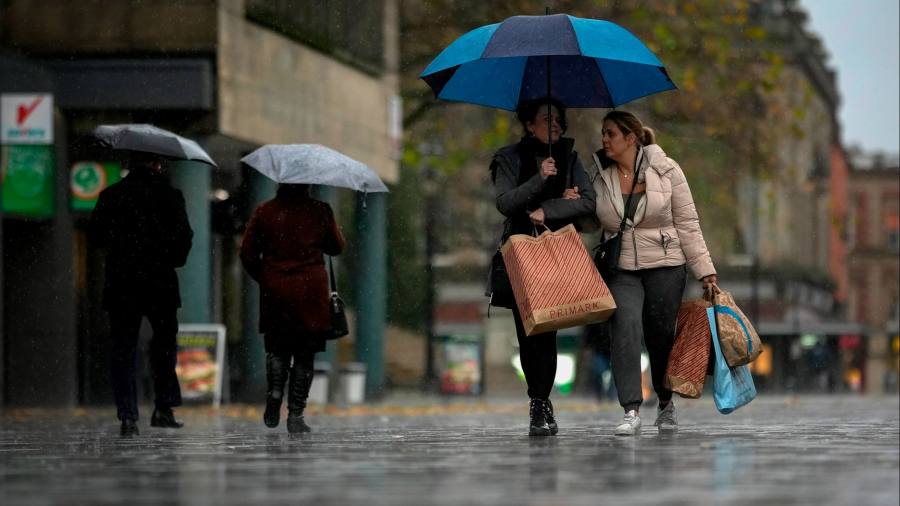
Jeremy Hunt pushed back on Friday against criticism that his £55bn fiscal squeeze unfairly targets middle earners, as new data indicated that UK workers will endure the longest period of wage stagnation for almost 200 years.
Hunt’s Autumn Statement on Thursday included £30bn of spending cuts and £25bn of tax rises in a bid to restore Britain’s credibility and fight soaring inflation. The UK chancellor argued the challenge could not be just met by raising revenue from the wealthy.
“It is not possible to raise £25bn of taxes just focusing on a very small group of very rich people and I am being very open about that,” he told the BBC.
But the scale of the problems facing the country as a whole was indicated by data from the Resolution Foundation think-tank, which said on Friday that British workers were “living through a two-decade wage stagnation”. The Office for Budget Responsibility forecast on Thursday that average real wages will not regain 2008 levels until 2027.
Such a prolonged stagnation in real wages has not been experienced in the country since the 1820s, according to figures calculated by the Financial Times based on long run estimates of UK economic statistics.
The Resolution Foundation calculated that if wages, adjusted for inflation, had grown at the pre-financial crisis rate of roughly 2 per cent a year since 2008, average real earnings would be £15,000 a year more in 2027 than the OBR now expects.
It added that “stealth” tax increases announced by the chancellor, freezing many tax thresholds and allowances across the system, would lower the typical income of households by 3.7 per cent. This would be spread relatively evenly across families on different incomes from the middle to the top of the income scale. Poorer households would be compensated with inflation-adjusted benefits and pensions.
Real disposable incomes are set to fall 7.1 per cent over the next two years, the biggest fall for six decades, according to the OBR’s estimates.
Opposition parties have accused the Conservatives of unnecessarily squeezing middle earners. Speaking on Friday to ITV, Labour’s shadow chancellor Rachel Reeves said ordinary working people “saw their pockets picked” due to the implementation of a “whole range of stealth taxes and council tax increases”.
Liberal Democrat treasury spokesperson Sarah Olney warned that “the already squeezed middle” were being “pushed to the brink” by the government’s policies.
James Smith, research director at the Resolution Foundation, said there was no avoiding “Britain is getting poorer” in an energy shock and the chancellor had to decide who paid the price.
“[Hunt] has decided that households will do so with higher energy bills, higher taxes, and worse public services than previously expected. Whether or not making the choices was tough, the reality of living through the next few years will be,” he said.